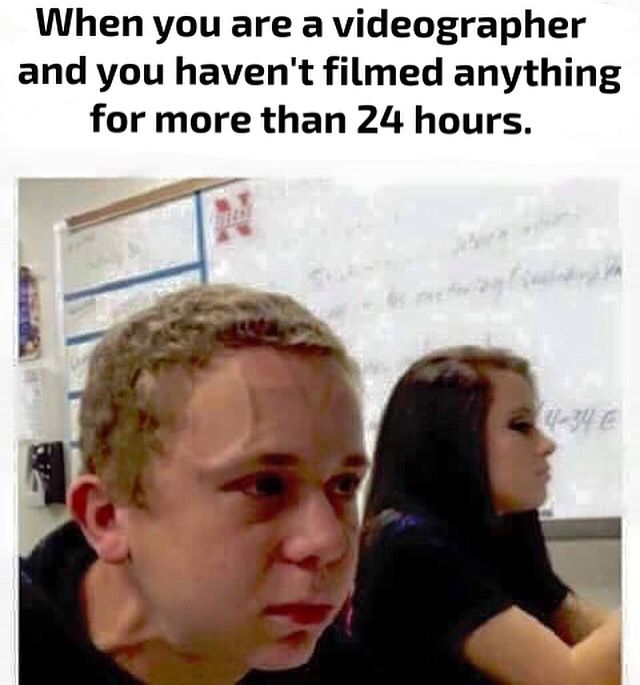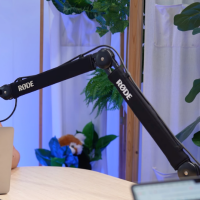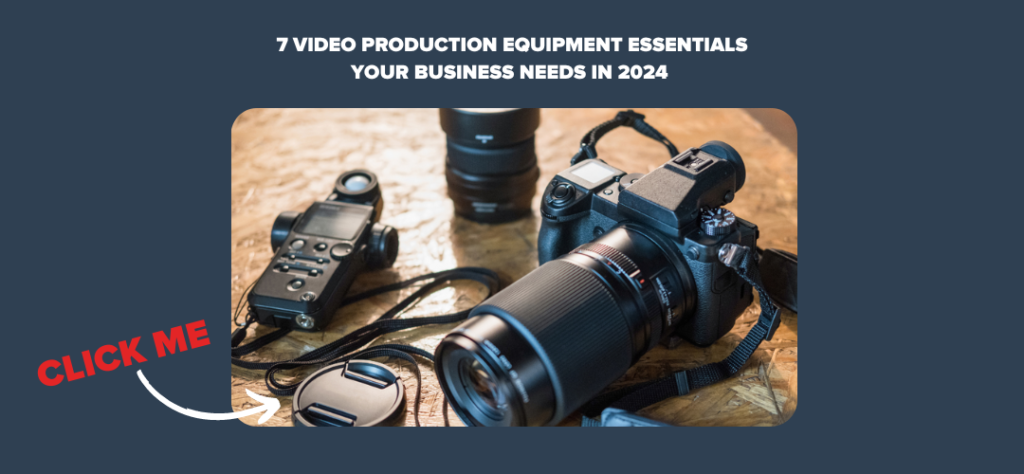Companies that use video grow their revenue 49% faster year on year than companies who don’t use video. Think about that for a second. With video becoming a critical element in marketing, it’s no longer just an option – it’s a must-have that can catapult your business’s growth. Now, you might be wondering: “Is it better to hire someone full-time to handle our video content, or should we outsource?”
The decision to bring on a new team member isn’t taken lightly at any business, especially when budgets are tight, and the stakes are high.
Between our Partners at Impact+ and ourselves, we’ve seen firsthand the difference between hiring a dedicated videographer versus outsourcing video production. We know the upsides and downsides of each, and we can guide you to choose the option that’s right for your business.
By the end of this article, you’ll walk away with knowing the pros and cons of hiring an in-house videographer versus outsourcing it, and you’ll have clarity on which option is best for your business.
Hang On… Does Your Business Even Need Video?

A report by HubSpot reveals that 54% of consumers want to see more video content from a brand or business they support. This preference extends across various platforms and industries, showcasing a universal appeal for video over text or images when learning about products or services.
“There are two changes in the market indicating a need for more video content. First, the search landscape is being disrupted by AI. Second, we’re seeing a shift to a video-first consumption of content for audiences.”
Kyle Denhoff, Director of Marketing, Audience Development @HubSpot
Recent studies show that consumers are not just enjoying video content; they are expecting it, with an overwhelming majority preferring video over other types of content when learning about products or services.
This shift is not just about preference; it’s about engagement. Videos have the power to capture attention, convey information quickly, and foster an emotional connection that text or images alone cannot achieve.
For businesses, this means that incorporating video content is no longer an option but a necessity to stay competitive and relevant in a crowded marketplace. Whether it’s through explainer videos, live demonstrations, customer testimonials, or behind-the-scenes insights, video content offers a dynamic way to engage both potential and existing customers.
Read: 7 Types of Video Marketing to Help Sales Reps Close More Deals
Pros of Hiring an In-House Videographer

So, now you know that video is necessary for your business. So, before deciding whether to hire a videographer or outsource production, let’s look at the pros and cons of hiring an in-house person.
1. Tailored Content at Speed
Imagine this: you’ve got a last-minute campaign that needs to launch, stat. With an in-house videographer, you’re not just ready; you’re already in action.
On top of that, your videographer knows your brand inside out. They’re not just making videos; they’re crafting stories that speak directly to your audience’s hearts.
That means faster turnaround times and content that hits just the right note, every single time.
2. Deep Understanding of Your Brand
Here’s the thing—no one knows your business like someone who lives and breathes it every day.
An in-house videographer becomes a part of your ecosystem.
They know your people, your products, and what makes your customers tick. This isn’t just about shooting beautiful videos; it’s about creating a visual strategy that aligns seamlessly with your goals.
Think of them as your brand ambassador, but with a camera.
3. Cost Efficiency Over Time
Let’s talk numbers.
Yes, the upfront cost can be substantial. You’re looking at salaries, equipment, software—the works.
But consider the volume of content you can produce.
No waiting for quotes, no scheduling conflicts, just non-stop content creation. Over time, this can significantly lower your cost per video, making it a smart investment as your demand for video content grows.
4. Flexibility and Responsiveness
Market trends shift. New products launch. Crisis hits. When you have someone on your team, you can pivot instantly.
Your videographer can capture behind-the-scenes footage, jump on emerging trends, and respond to real-time feedback from your audience. This kind of agility is priceless in today’s fast-paced market.
Cons of Hiring an In-House Videographer
While the benefits of an in-house videographer are clear, it’s crucial to consider the other side of the coin. Here are some of the challenges you might face:
1. Initial Investment and Upkeep Costs
Hiring an in-house videographer means not just paying a salary, but also investing in professional video equipment and editing software, which can quickly add up.
This initial outlay can be a hurdle, especially for smaller businesses or those cautious about cash flow.
Read: 7 Video Production Equipment Essentials Your Business Needs in 2024
2. The Risk of a Bad Hire
Let’s not sugarcoat it—the hiring process is fraught with uncertainty. Get it wrong, and it’s not just a matter of a poor fit.
A bad hire can disrupt your team’s dynamics and even damage your brand’s reputation if their work doesn’t meet your standards. Plus, the cost of replacing an employee can be substantial, not to mention the lost time and resources.
3. Management and Strategy Development
Having an in-house videographer also means you need to manage them effectively. This includes not only day-to-day supervision but also strategic direction.
Without a clear video marketing strategy, even the most skilled videographer might struggle to deliver content that aligns with your business objectives. This can lead to wasted effort and missed opportunities.
4. Scalability Limitations
While one videographer might handle your current needs, what happens as your video demands increase?
Scaling up requires either hiring more staff or outsourcing certain projects, which can complicate the management process and dilute the consistency of your brand message.
Cost Analysis: In-House vs Outsourced Video Production
When considering the financial aspects of video production, the choice between in-house and outsourcing hinges on several cost factors:
- Initial Setup and Ongoing Costs: Hiring an in-house videographer involves initial costs like salary, benefits, and equipment, which can be substantial. However, these costs become more manageable over time, especially as the volume of content produced increases. In contrast, outsourced video production costs are variable and depend on the frequency and complexity of the projects but can escalate quickly without the burden of initial setup costs
- Cost Per Video: In-house production typically reduces the cost per video as you scale up production, making it a cost-effective option for businesses planning a high volume of video content. Outsourcing, while potentially more cost-efficient for low-volume or highly specialised projects, often results in higher per-video costs
- Long-Term Investment: In-house videography can be seen as a long-term investment in your brand’s marketing capabilities, potentially offering a higher return on investment through brand consistency and the ability to rapidly produce content
To sum up, from a cost perspective, it’s more effective to hire an in-house videographer if you plan on scaling up video production. On the other hand, it’s far more effective from a cost point of view to outsource video production if you’re not planning on producing content consistently.
In-house vs Outsourced Video Production
Deciding whether to hire an in-house videographer or to outsource your video production involves balancing cost, control, quality, and scalability.
Here’s how you can approach this critical decision:
1. Evaluate Your Video Content Needs
Start by assessing how integral video is to your marketing strategy. How many videos do you need annually? What types of videos are they—promotional, educational, behind-the-scenes?

This will help you determine the volume of work and whether it justifies a full-time position.
Bottom line: If you need to have more than one video shoot a fortnight, it’s probably better to invest in an in-house person.
2. Consider Your Budget Flexibility
Reflect on your financial situation.
Do you have the budget not only for the salary but also for the necessary equipment and ongoing expenses?
Remember, an in-house videographer can potentially save money in the long run, but the initial investment is significant.
3. Think About Brand Consistency
One of the biggest advantages of having an in-house videographer is the consistent brand message that can be seamlessly integrated across all videos.
If brand consistency is high on your priority list, this might tilt the scales towards hiring internally.
4. Assess Your Capacity for Management
Consider if you have the management bandwidth to handle an in-house team.
This includes providing creative direction, aligning video content with marketing strategies and with sales, and handling day-to-day administrative tasks.
If management capacity is stretched thin, outsourcing may relieve some of this pressure.
5. Plan for the Future
Think long-term about your marketing and video content strategy. Will the demands increase? Could your in-house videographer grow into a more comprehensive role or manage a team in the future? If this is the case it might be a suitable option to hire an in-house person.
Planning for growth can help you decide if it’s better to build a team internally or rely on external partners.
6. Trial Outsourcing First
If you’re still undecided, consider starting with outsourcing. It can give you a clearer perspective on the volume and type of video content that works best for your audience without the immediate commitment of a full-time hire.
This experience can be invaluable when deciding if moving production in-house is the right next step.
Essential Skills to Look for in an In-House Videographer
So, let’s say you do want to hire an in house videographer. How do you make sure you hire the right person?
When hiring an in-house videographer, certain skills and attributes are essential to ensure they can effectively contribute to your marketing goals. You should look for someone with these attributes:
- Technical Proficiency: Strong skills in video shooting, lighting, and editing are fundamental. Familiarity with the latest video technology and editing software is also crucial
- Creativity and Storytelling: The ability to tell compelling stories that align with your brand’s message and engage your audience is key. A good videographer should bring creative ideas that enhance your brand narrative
- Cultural Fit and Communication Skills: They should mesh well with your company’s culture and be able to communicate effectively with other team members and stakeholders
- Adaptability and Problem-Solving: The capacity to adapt to different shooting environments and overcome challenges is important, especially when working on varied projects within tight deadlines
So, Which is Right for Your Business?
Deciding between hiring an in-house videographer and outsourcing your video production is more than a financial calculation—it’s a strategic decision that impacts how your brand connects with your audience.
Each option offers distinct benefits and comes with its own set of challenges. The right choice depends on your company’s specific needs, goals, and resources.
Let’s make it super simple.
Hire an in house videographer if all of these are true:
- You need consistent video shoots (more than one a fortnight)
- You can afford a salary (part time or full time) and video equipment
- You want to scale video production in the near future
- Your team has the capacity to manage the new role
If one or more of these aren’t true, you might be leaning towards outsourcing.
Whether you choose to build an internal team or partner with external experts, the key is to stay focused on what best serves your long-term vision and enhances your connection with your customers.
Remember, video isn’t just content; it’s a powerful tool to engage, convince, and convert your audience. By aligning your video production strategy with your business objectives, you can create compelling content that not only tells your story but also drives measurable results.
Next, learn about the Best Video Marketing Strategy you can use for your business.















